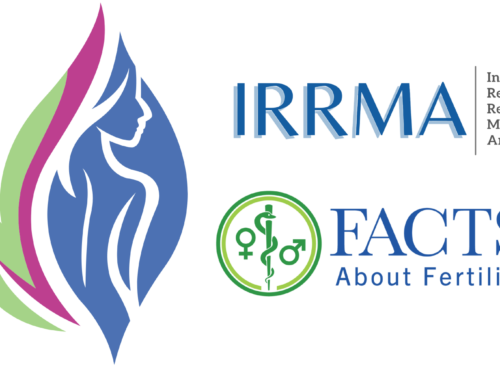H.B. Wurmeling. FEAMC Congress, Porto, October 2016
(Dr. Wurmeling was Treasurer of FIAMC 50 years ago)
The individual’s responsibility for his DNA. Necessary restrictions when donating organs or tissues / La responsabilité personnelle de son propre DNA. Limitations éthiques dans la donations d’organes et tissus / A responsabilidade pessoal pelo próprio ADN. Limitações éticas na doação de órgãos e de tecidos.
Summary /Résumé / Resumo
Artificial fecundation, especially IVF, can be practiced by using sperm or eggcells without the actual will or consent of the donors. This is in use. Since „Dolly“ we have to expect furthermore cloning of human individuals, at least embryos, from any cell of our bodies. In both cases the „donors“ cannot take over the responsibility for their offspring. Therefore everyone is morally obliged to avoid such misuse. When giving productive materials for medical or scientific use, therefore the permission should be limited in order not to produce a new human individual. To this moral obligation corresponds the freedom of everybody to put such limitations and the state’s obligation to respect them. Furthermore it is the right of a human individual, not to be deprived intentionally of paternal responsibility in every stage of his development. Finally the well being of any child affords its growing up as far as possible in a secure atmosphere under the auspices of reliably connected parents – in other words of a married couple. This should be more respected in discussing sexual ethics.
Text /Texte / Texto
Anything goes. Even the production of human individuals using egg-cells or sperms from already dead persons or from those, who do not actually want such a production. And since the success of the Dolly-experiment twenty years ago one must think this to become possible by using even adult human cells, in other words by cloning human beings. All this is, in the view of a catholic doctor, morally not acceptable and seems not worth any further discussion..
In spite of that we have to regard these possibilities, because donors of organs or tissues loose or give up the control of their reproductive possibilities. Thereby non-parents gain these possibilities and may produce human individuals, at least in embryonic stages, depriving those human beings from paternal responsibility.
Furthermore there is practized an artificial or in vitro fecundation in cases, when the couple is locally separated. In case of divorce, one of the partners wants to use frozen semen or eggcells of the other partner without or against his or her consent or will. In other cases the partners are separated because of military service (Americans in Vietnam) or because of being in jail (imprisoned Palestinensians in Israel). Semen could be transported officially or smuggled. In both cases, the actual consent or will of the donor of the semen to create a child is not proved. Meanwhile he could have died.
In all these cases the possibility of practizing responsibility for the child by one of the parents is voluntarily excluded. – (It has to be admitted, that this is the case, too, when one of the parents dies or because of other reasons becomes unable to fulfil his or her paternal obligations. But this occurs unfortunately and is not intended. Therefore it is without any moral importance).
But the question of parental responsibility has to be regarded by catholic doctors because of its connection to organ- and tissue donation. It is not unrealistic to fear, that in future those doctors or scientists, who get control on donated organs or tissues for medical or scientific use do not necessarily feel restricted to use these materials for fabrication of human individuals, be these still embryos, children or adult individuals. If they do so, the biological parents of human individuals produced in this way are deprived of the possibility to fulfil their duties in favor of their offspring.
One could ask whether such misuse of the procreative potentialities of human beings is forbidden by law? The Universal Declaration of Human Rights from 1948 may be quoted (Art. 16, 3): „The family is the natural and fundamental group of society and is entitled to protection by society and the State.“ But this statement meets our problem only in a very general manner and needs a very well-intentioned interpretation to be used as a convincing argument for legal prohibition.
More explicit is the Basic law (Constitution) of the Federal Republic of Germany in Art. 6, 2, 1, saying: „The care and upbringing of children is the natural right of parents and a duty primarily incumbent upon them….“ But to fulfil this right and duty becomes impossible, though the child is produced with materials from their parents body, but deprived of any connection to these parents. Maybe this is sufficient to legally prohibit such parentless procreation of orphans.
The parental rights on the other hand correspond to the child’s right as stated in the UN Convention on the Rights of the Children (1989), which says (Art. 7): “The child … shall have … as far as possible, the right to know and be cared for by his or her parents.”
In all probability the legislators and the courts will not understand these basic statements as to prohibit the production of orphans, especially of such in embryonic stage. But every individual can – and must for moral reasons – forbid such production by using materials from his or her body. In consenting to organ-donation or to the scientific or medical use of materials of his or her body one can limit this consent by the prohibition of misuse as to produce human individuals in any stage of evolution. And if, like in Austria, post-mortems and organ-donations are compulsary, one can declare such limitations in a legally organized manner.
First of all it seems necessory to call the attention of catholic doctors on the forseeable dangers of an unlimited reproductive medicine – and the attention of legislators and judges, too.
But beyond this special problem we should much more think of the children’s rights, because of their general importance for sexual behavior.
The well being of any child affords its growing up as far as possible in a secure atmosphere under the auspices of reliably connected parents – in other words of a married couple. This should be more respected in discussing sexual ethics. Any child, which is created before or extra marriage misses the security of the irrevocable union of its parents, this being the optimal condition for feeling secure and to develop a free and open-minded personality. Thus – yet before its creation – a child’s welfare and well-being should be constitutional for sexual ethics. As it is one’s duty to care for such an optimal condition, it must be called immoral to neglect this duty – in other words: It is immoral to create a child into the insecurity of its parents unmarried relationship. One better uses any contraceptive device than to create a child into such suboptimal conditions.
In discussion of ethics of sexuality we normally think in kategories of nature, personal dignity, the sixth commandment and whatever else. But that sexual behavior should be governed by the respect of the interests of a possibly created child may convince even those who do not care of a pope’s teaching. One should think about it!








